(This is the ninth entry in the The Modern Library Reading Challenge, an ambitious project to read the entire Modern Library from #100 to #1. Previous entry: The Magus)
[Only months after writing this essay, we were extremely honored to interview William Kennedy for The Bat Segundo Show. That conversation runs 64 minutes and gets into Kennedy’s entire career.]
“Anybody who doesn’t have an idea about what it is to be homeless, or on the road or lost and without a family, really hasn’t thought very much at all.” — William Kennedy, Interview with The Paris Review
 William Kennedy was in his mid-fifties when all of his novels went out of print. While he remained a working journalist, his latest manuscript about a scuffed up drifter named Francis Phelan — a minor character from his 1978 novel, Billy Phelan’s Greatest Game — had been rejected by thirteen publishers. Ironweed had come comparatively quicker than his previous novels. Kennedy wrote eight versions of Legs over six years. He devoted two years to Billy Phelan. But he wrote Ironweed in seven months. Still, this unanticipated celerity was of null solace to publishers studying Kennedy’s then sketchy sales record.
William Kennedy was in his mid-fifties when all of his novels went out of print. While he remained a working journalist, his latest manuscript about a scuffed up drifter named Francis Phelan — a minor character from his 1978 novel, Billy Phelan’s Greatest Game — had been rejected by thirteen publishers. Ironweed had come comparatively quicker than his previous novels. Kennedy wrote eight versions of Legs over six years. He devoted two years to Billy Phelan. But he wrote Ironweed in seven months. Still, this unanticipated celerity was of null solace to publishers studying Kennedy’s then sketchy sales record.
Kennedy was hardly a stranger to such uncertainty on the fiction front. In his initial fiction efforts, he wrote 30 stories These were all rejected. As he told Penny Maldonado in a 1969 interview, it was a rejection slip from The Atlantic reading “You write with a facility that has held our attention” that kept him going for ten more years. Saul Bellow, whom Kennedy met while in Puerto Rico, had urged the young Kennedy to carry on with his fiction writing. But Kennedy, banging away late into the night after a long day, would fall asleep at 2AM in the middle of a sentence. He felt he did not know his hometown of Albany, New York. So he moved back. Bellow continued to encourage him, even helping him secure an agent. Indeed, without Bellow, Ironweed would not have been published at all. It was Bellow’s direct intervention with Viking Press which ensured that Kennedy’s best known novel was published. The book would go on to win the Pulitzer Prize. Kennedy would be awarded a $264,000 tax-free MacArthur fellowship and he would use this money to establish what is now known as the New York State Writers Institute. Ironweed would be included on the Modern Library list, where, years later, some wild-eyed bastard in Brooklyn with a ridiculously ambitious reading project would finally get around to it.
I had not read Kennedy before, but I am glad that I did. Like Iris Murdoch’s Under the Net, I read the book twice, thought about it for a while, and found myself very tempted to read additional volumes. Fortunately, I was halted from such ambition after taking a look at Benedict Giamo’s The Homeless of Ironweed, a dry and overanalytical tome written by one of those insufferable academics who can never see beyond their blinkered and not especially interesting perspectives. I realized that I’d be on firmer ground confining my modest insights to just one book in Kennedy’s multi-volume Albany Cycle.
Ironweed opens on October 31, 1938. Francis Phelan, a former major league ballplayer bouncing around for twenty-two years, sees dead people. Thankfully, by every artistic standard, William Kennedy is a superior writer to M. Night Shyamalan. The dead, which include Francis’s expired relatives and a few men he’s killed mostly in self-defense, observe him as he labors at Saint Agnes Cemetery. They haunt him in buses and boxcars. Is Francis hallucinating? Do these visions emerge from his drinking problem? Over the years, there has been a temptation among some critics to cite this facet of Ironweed as “magical realism.” But because Ironweed is such a human novel, I think that the ghosts can more sufficiently identified as part of Francis’s perspective. After all, if we wish to accept and understand troubled souls, then we must often acknowledge what seems real to them. (It’s worth observing that in a 1983 interview with Larry McCaffery, Kennedy pointed out that the ghosts “probably came more from Our Town and Dickens than from Marquez.”)
We learn in the book’s masterful first chapter that Francis has suffered great grief. Years before, Francis accidentally dropped his infant son Gerald onto the hard tile floor of a saloon, killing him only thirteen days after his birth.* “Francis left his family, drowned his sorrows in drink, and took up with another woman named Helen. Yet learn, in 1930, that Francis lost his job at a fixit shop through no fault of his own and he could not land another job. Back then, he left Helen too. He stays with her still, but the relationship has attenuated.
What causes Francis to run? Does Francis’s transiency transform him into an impatient and violent figure? Well, it’s complicated. Here is a man who, upon returning to his family home on All Saints’ Day with a turkey, says “I don’t want no fights, rile up the family.” And it would seem that he’s the type to avoid conflict. Yet only moments before, after an aggressive effort to collect payment from a ragman, Francis says, “And I ain’t really a bad sort once you get to know me.” But when a shady figure name Little Red tells him to shut up in a flophouse, Francis instantly resorts to violence.
Undoubtedly, being identified as a bum hasn’t exactly put Francis’s grief on the fast track. Late in the book, Rudy (a kind of quasi-Lenny to Francis’s George Milton) tells Francis that people call downtrodden figures bums because they feel better when they say it. But is being a bum such a cut and dry term of disparagement? Not exactly. When Francis works for a ragman named Rosskam, Rosskam regularly amends his assessment of the former Washington Senators ballplayer turned sandwich-eating “bum” with modifiers (“tidy,” “impatient,” “sensitive”), whenever Francis requests something or ventures a philosophical thought. Yet during one moment, the act of physical labor triggers a revelatory self-assessment:
He rubbed his hands together. Where they the enemies? How could a man’s hands betray him? They were full of scars, calluses, split fingernails, ill-healed bones broken on other man’s jaws, veins so bloated and blue they seemed on the verge of explosion. The hands were long-fingered, except where there was no finger, and now, with accreting age, the fingers had thickened, like the low-growing branches of a tree.
If Francis’s hands are an accumulative road map of nasty nicks and sad crannies, then why isn’t there any indication here of Francis’s past as a ballplayer or a family man? Even accounting for the fact that this period in Francis’s life came before Rowdy Dick took off “two thirds of a right index finger” with a cleaver (a curiously exact phrase), surely the complete portrait would value this period as much as the epoch that involved “ill-healed bones broken on other man’s jaws.” On the other hand, Francis doesn’t entirely accept his physical form, for he views his hands as independent entities. “They don’t need me,” he tells Rosskam, “They do what they goddam please.” (This is another inverted nod to Steinbeck’s Depression novel. Lennie may not know his own strength, but the hard truth is that Francis does. It’s also worth noting that, in a 1989 New York Times Book Review essay, Kennedy would confirm his great admiration for Steinbeck, with a sly nod to Francis’s digits: “I look around and try to find other American writers whose work has meant as much to me, and I count them on one hand. Maybe one and a half.”) On the other hand, Francis uses his hands for labor and is willing to obtain compensation by any means necessary. When Rosskam makes a move to cheat Francis, Francis says, “Dead men took their last ride on their hand. You get me?”
Are Francis’s hands just as dead as the phantoms who haunt him? Is Francis’s life “long-lived, except when there was no life?” Labor as a form of salvation crops up throughout the book during unusual moments. For example, when Francis and Rudy meet a tubercular man named Moose in a flophouse, Moose says, “Probably ain’t nothin’ wrong with you work won’t cure.” Yet Ironweed‘s vagrants can work as hard as they want or even discover ten dollar bills that “grow on trees,” but they are still at the behest of raiders who bust up shantytowns, a reverend who won’t provide shelter to anyone who drinks (this policy causes a woman to die), and cruel “goblins” who rip off hard-earned money.
Yet Kennedy is careful to suggest that within societal dichotomies lie additional distinctions. (There’s something especially plaintive in Francis “seeing” the dead when he is perceived as “dead” by others.) “Some people,” says Rosskam, “they don’t know junk. It ain’t garbage. And garbage, it aint’ junk.” And as an early conversation between Francis and Rudy about an alcoholic named Sandra reveals, labels are all about aesthetic perception:
“She’s a bum or just on a heavy drunk?”
“She’s a bum.”
“She looks like a bum.”
“She’s been a bum all her life.”
“No,” said Francis. “Nobody’s a bum all their life. She hada been somethin’ one.”
The last line from Francis, with its sandwiched As and its dropped Gs, shows off one of the novel’s subtle strengths. From the vantage point of 2011, it’s difficult to corroborate the way in which the homeless talked in 1938. Yet within the context of the book, the vernacular here feels authentic — even when a kind librarian offers an overly formalistic command to Helen: “But you may stay as long as you like, my dear, if you choose to read.” (Can we truly imagine a librarian saying a sentence constructed like that today?)
But Francis and his ilk may as well be Martians to most of the world. This xenophobia is backed up by several oblique references to Orson Welles’s radio adaptation of The War of the Worlds. When Francis returns home, he says, “It ain’t one of them fellas from Mars.” An early colloquy between Francis and Rudy discussing the recently transmitted hysteria has Francis proposing a solution to the claims that Martians landing in Grovers Mill, New Jersey: “Anybody sees a Martian oughta jump out two windows.” But at least one learned man in Albany — specifically, Dr. Benjamin Ross of Dudley Observatory — points out, “Earth is a very small target and in all probability a Martian space ship would miss it altogether.”
If seeing someone as lesser and/or foreign is the only way for these characters to survive, then this may explain Francis’s protest during a trolley strike in 1901. Francis’s involvement starts off fairly innocuously, lighting kerosene-soaked sheets on an electrical wire. But upon sighting a scab conductor named Harold Allen, he uses his pitching prowess to lob a stone at his skull. Harold becomes “the first man Francis Phelan ever killed.” When the dead Harold starts questioning Francis’s logic, all Francis can say is “I got arguments. I got arguments.”
Twenty-eight years later, Francis beats a charge of political corruption (voting for Democrats twenty-one times at five dollars a pop) on a technicality. The man who persuaded Francis’s lawyer to go easy with the bill is Martin Daugherty, a former neighbor and a newspaper columnist, who has written articles about Francis’s family. Indeed, we learn near the end of the book that one of Daugherty’s relatives, Edward, has written a left-wing play called The Car Burns lionizing Francis’s actions. This suggests that Francis’s actions matter more than he realizes, especially because they are memorialized by writers. The famous line from The Man Who Shot Liberty Valance (“When the legend becomes fact, print the legend”) certainly applies. On the other hand, two graveside names that Francis sees toiling at Saint Agnes are DAUGHERTY and KENNEDY. Even those who print the legends eventually die. If death unites all of us, why do we spend so much of our times erecting boundaries? Even in a gloomy novel like Ironweed, there’s a moment in which everybody comes together in a bar to experience “unnatural sociality.” The name of the bar? The Gilded Cage. “Where the old Gayety Theater used to be.”
* — Kennedy describes Gerald’s corpse in the cemetery as one with “a protective web which deflected all moisture, all moles, rabbits, and other burrowing creatures.” Additionally, Gerald’s “ability to communicate and to understand was at the genius level among the dead.” Is there some genius contained within Francis’s scions? Billy Phelan, Francis’s quite living son, says late in the book, “How could I know anything? I’m a goddam genius.” “Genius” may be just as useless a label as “bum.”
Next Up: Erskine Caldwell’s Tobacco Road!
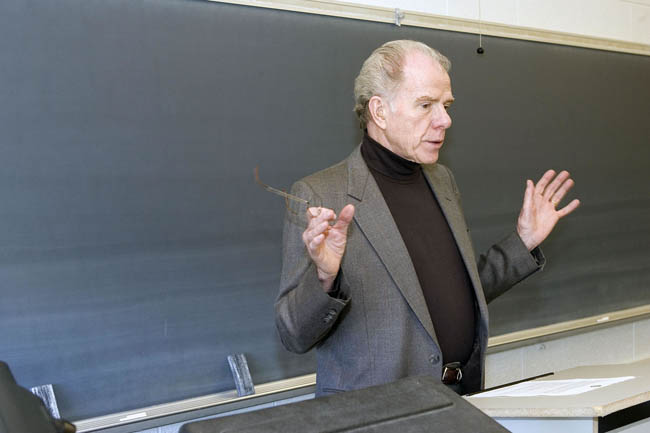
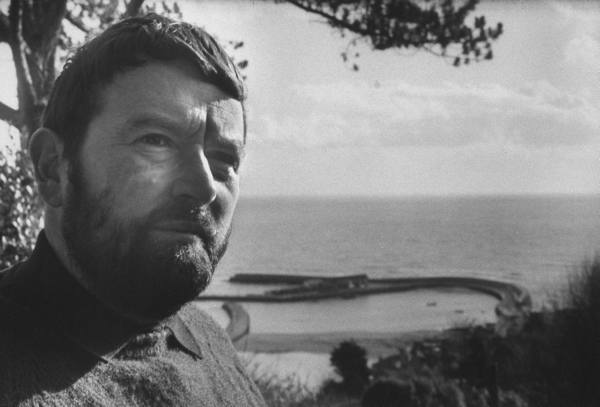
 Over the course of several interviews, John Fowles enjoyed recycling one particular anecdote concerning The Magus. The then bigshot author once received a letter from a woman who didn’t care for his book. The woman asked Fowles if two of the novel’s characters got together at the end. Fowles wrote back and said, “No.” He received another letter from a New York attorney dying of cancer in a hospital. The lawyer asked the same question, but, unlike the woman, informed Fowles that he enjoyed the book. Fowles replied, “Yes.” In 1986, Fowles would tell a dull interviewer seeking literal-minded answers, “I tell that story because that’s how I feel — I don’t know the answer. And I tend to react as people want, or don’t want it — if they’ve annoyed me — to end.” But Fowles’s story after the story does have me wondering about the novelist’s responsibility. If a novelist leaves his volume open-ended, does he not have some duty to know every aspect of his characters as he knows the back of his hand? On the other hand, if Fowles led his narcissistic schoolteacher Nicholas Urfe to a specific point, perhaps he’s off the hook for anything beyond these final words:
Over the course of several interviews, John Fowles enjoyed recycling one particular anecdote concerning The Magus. The then bigshot author once received a letter from a woman who didn’t care for his book. The woman asked Fowles if two of the novel’s characters got together at the end. Fowles wrote back and said, “No.” He received another letter from a New York attorney dying of cancer in a hospital. The lawyer asked the same question, but, unlike the woman, informed Fowles that he enjoyed the book. Fowles replied, “Yes.” In 1986, Fowles would tell a dull interviewer seeking literal-minded answers, “I tell that story because that’s how I feel — I don’t know the answer. And I tend to react as people want, or don’t want it — if they’ve annoyed me — to end.” But Fowles’s story after the story does have me wondering about the novelist’s responsibility. If a novelist leaves his volume open-ended, does he not have some duty to know every aspect of his characters as he knows the back of his hand? On the other hand, if Fowles led his narcissistic schoolteacher Nicholas Urfe to a specific point, perhaps he’s off the hook for anything beyond these final words: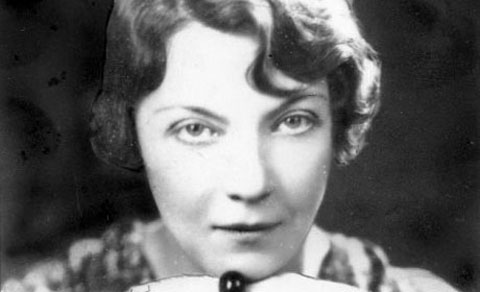
 In Geoff Dyer’s Otherwise Known as the Human Condition, there’s an essay in which Dyer describes his reading habits. He writes about a late stage wade into Jean Rhys’s Wide Sargasso Sea. “I could make neither head nor tail of the first part,” notes Dyer. “[B]ut, since the book was short and the end in sight almost from the first page, I finished it and realized that it was indeed the masterpiece everyone had claimed.” It’s safe to say that this knowingly superficial take, coming from a man
In Geoff Dyer’s Otherwise Known as the Human Condition, there’s an essay in which Dyer describes his reading habits. He writes about a late stage wade into Jean Rhys’s Wide Sargasso Sea. “I could make neither head nor tail of the first part,” notes Dyer. “[B]ut, since the book was short and the end in sight almost from the first page, I finished it and realized that it was indeed the masterpiece everyone had claimed.” It’s safe to say that this knowingly superficial take, coming from a man 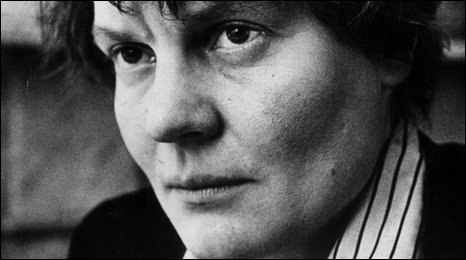
 The above sentiment comes from Annandine, a character in a manuscript entitled The Silencer, modeled upon some philosophical chatter between a frustrated translator named Jake Donoghue and an industrialist/sophist named Hugo Belfounder, which is contained within Iris Murdoch’s debut novel, Under the Net. And if all that makes the book sound like a matryoshka doll with endless porcelain layers that need to be opened if the reader has any hope of unraveling the truth (to some degree, it is), then I should also note that Under the Net is also a sprightly picaresque novel. There are dogs, fireworks, giant Roman film sets occupied by socialists, martinets working at hospitals, experimental theatrical performances, and mad searches for people in pubs.
The above sentiment comes from Annandine, a character in a manuscript entitled The Silencer, modeled upon some philosophical chatter between a frustrated translator named Jake Donoghue and an industrialist/sophist named Hugo Belfounder, which is contained within Iris Murdoch’s debut novel, Under the Net. And if all that makes the book sound like a matryoshka doll with endless porcelain layers that need to be opened if the reader has any hope of unraveling the truth (to some degree, it is), then I should also note that Under the Net is also a sprightly picaresque novel. There are dogs, fireworks, giant Roman film sets occupied by socialists, martinets working at hospitals, experimental theatrical performances, and mad searches for people in pubs. 
 In Alexandra Styron’s forthcoming book, Reading My Father, she describes liberating a galley of Sophie’s Choice, a presale unit freshly arrived at the family home, at the age of twelve. It was the spring of 1979. Her plan was to read the mint green paperback between classes. She felt it incumbent “to somehow validate the rumors of his greatness.” Young Alexandra discovers that the novel bores the tears out of her. “The difficult vocabulary and historical references kept eluding me,” she writes, “until finally I began to let them sail by, unchallenged.” Further, upon encountering her father’s libidinous passages, she then becomes embarrassed, wincing “at the liberal sprinkling of words like fucking and horny and lust.” (Here’s the full tally according to Amazon’s Look Inside! feature: “fucking” — 29 counts; “horny” — 4 counts; and “lust” — 20 counts. I am also informed that readers in need of steady doses of the mildly profane are likely to find a good deal more “fuck” and “fucking” in Philip Roth’s Zuckerman books. Miles Davis’s autobiography, published a decade after Sophie’s Choice, contains 672 uses of the word “fuck.” I think it’s safe to say that Styron was pushing the “fucking” boundaries no more and no less than any other writer around the time. Perhaps his striking tone says something about his ability to alarm.)
In Alexandra Styron’s forthcoming book, Reading My Father, she describes liberating a galley of Sophie’s Choice, a presale unit freshly arrived at the family home, at the age of twelve. It was the spring of 1979. Her plan was to read the mint green paperback between classes. She felt it incumbent “to somehow validate the rumors of his greatness.” Young Alexandra discovers that the novel bores the tears out of her. “The difficult vocabulary and historical references kept eluding me,” she writes, “until finally I began to let them sail by, unchallenged.” Further, upon encountering her father’s libidinous passages, she then becomes embarrassed, wincing “at the liberal sprinkling of words like fucking and horny and lust.” (Here’s the full tally according to Amazon’s Look Inside! feature: “fucking” — 29 counts; “horny” — 4 counts; and “lust” — 20 counts. I am also informed that readers in need of steady doses of the mildly profane are likely to find a good deal more “fuck” and “fucking” in Philip Roth’s Zuckerman books. Miles Davis’s autobiography, published a decade after Sophie’s Choice, contains 672 uses of the word “fuck.” I think it’s safe to say that Styron was pushing the “fucking” boundaries no more and no less than any other writer around the time. Perhaps his striking tone says something about his ability to alarm.)
 When I first discovered the names Kit, Port, and Tunner, my mind instantly concluded that these must be debauched head honchos for some baleful corporate defense firm. This was then followed by a few inescapable jokes that I delivered to walls of books when nobody was around: Tunner getting Kit’s kit off, Port in a storm, and so forth. I am sad to report that the tomes offered no laughs or kind titters in return. Neither, for that matter, did my copy of The Sheltering Sky: a grim and largely humorless volume that did an impressive job filling about six hours of my life with a stupendous sense of dread. (I feel dreadful just remembering the experience of reading this book, even though I simultaneously recognize the book’s virtues and now see just how much Dan Simmons was channeling Bowles with his excellent debut novel, Song of Kali.)
When I first discovered the names Kit, Port, and Tunner, my mind instantly concluded that these must be debauched head honchos for some baleful corporate defense firm. This was then followed by a few inescapable jokes that I delivered to walls of books when nobody was around: Tunner getting Kit’s kit off, Port in a storm, and so forth. I am sad to report that the tomes offered no laughs or kind titters in return. Neither, for that matter, did my copy of The Sheltering Sky: a grim and largely humorless volume that did an impressive job filling about six hours of my life with a stupendous sense of dread. (I feel dreadful just remembering the experience of reading this book, even though I simultaneously recognize the book’s virtues and now see just how much Dan Simmons was channeling Bowles with his excellent debut novel, Song of Kali.) 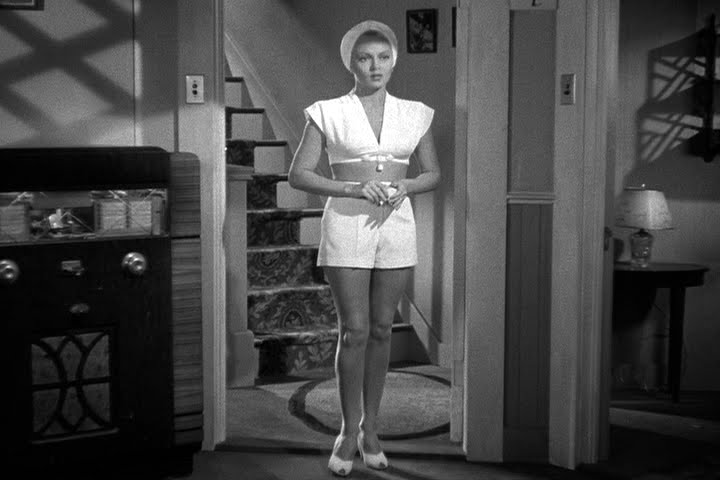
 When I was a shy stripling new to San Francisco, there were three writers who showed me the way to manhood: James Baldwin, Henry Miller, and James M. Cain. Baldwin was angry for being the other, but with very good reason. Miller was playful (and often indignant) for being the other, but his “other” was narrow and individual. Not a cult of one, but not the kind of guy to easily integrate into a Western Union desk job. Hence, the writing life. Hence, poverty. Bless both gentlemen for their eccentricities. I’m not being hyperbolic when I state that I couldn’t have survived my early twenties without them. And bless the Modern Library for including both of these writers on its list. I look forward to revisiting them.
When I was a shy stripling new to San Francisco, there were three writers who showed me the way to manhood: James Baldwin, Henry Miller, and James M. Cain. Baldwin was angry for being the other, but with very good reason. Miller was playful (and often indignant) for being the other, but his “other” was narrow and individual. Not a cult of one, but not the kind of guy to easily integrate into a Western Union desk job. Hence, the writing life. Hence, poverty. Bless both gentlemen for their eccentricities. I’m not being hyperbolic when I state that I couldn’t have survived my early twenties without them. And bless the Modern Library for including both of these writers on its list. I look forward to revisiting them.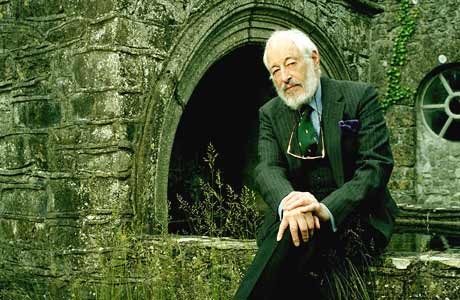
 I feel morally obliged to point out that I am hardly the only person attempting to read all of the Modern Library titles. When I first considered this project, I was completely unaware of
I feel morally obliged to point out that I am hardly the only person attempting to read all of the Modern Library titles. When I first considered this project, I was completely unaware of 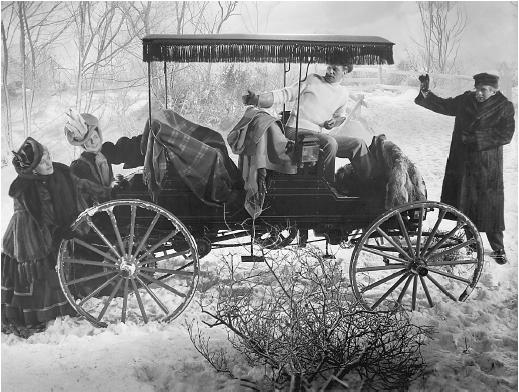
 By all reports, Booth Tarkington was hot shit sometime in the early 20th century. It is quite possible that he was the kind of man who entered a room and announced with his very presence: “Do you know who I am?” How do we know this? Well, he won the Pulitzer Prize twice (for Ambersons and Alice Adams). He had family members who were politicians (his uncle, Newton Booth, was the eleventh Governor of California and a United States Senator) and Tarkington himself was elected to the Indiana State Legislature.
By all reports, Booth Tarkington was hot shit sometime in the early 20th century. It is quite possible that he was the kind of man who entered a room and announced with his very presence: “Do you know who I am?” How do we know this? Well, he won the Pulitzer Prize twice (for Ambersons and Alice Adams). He had family members who were politicians (his uncle, Newton Booth, was the eleventh Governor of California and a United States Senator) and Tarkington himself was elected to the Indiana State Legislature. 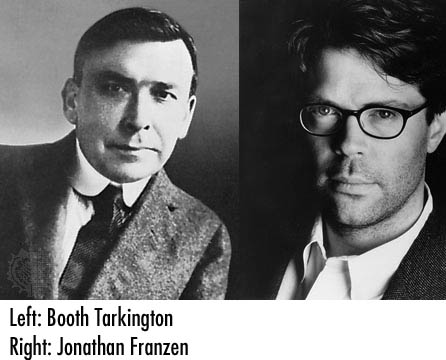 Yet since we are forced to contend with both Tarkington’s racism and his natural gifts as a novelist, perhaps we have a truer sense of 1918’s ideological incoherence than the weak-kneed politically correct type hoping to scrub out the ugliness. Books like The Magnificent Ambersons are uncomfortable and test the disposition. Would Jonathan Franzen have ended up like this, if he had been born ninety years earlier? Would Franzen (bigshot social novelist of his time) have hated black people as much as Tarkington (bigshot social novelist of his time) did? Perhaps. Perhaps Faulkner’s maxim applies: a writer is congenitally unable to tell the truth and that is why we call what he writes fiction.
Yet since we are forced to contend with both Tarkington’s racism and his natural gifts as a novelist, perhaps we have a truer sense of 1918’s ideological incoherence than the weak-kneed politically correct type hoping to scrub out the ugliness. Books like The Magnificent Ambersons are uncomfortable and test the disposition. Would Jonathan Franzen have ended up like this, if he had been born ninety years earlier? Would Franzen (bigshot social novelist of his time) have hated black people as much as Tarkington (bigshot social novelist of his time) did? Perhaps. Perhaps Faulkner’s maxim applies: a writer is congenitally unable to tell the truth and that is why we call what he writes fiction. 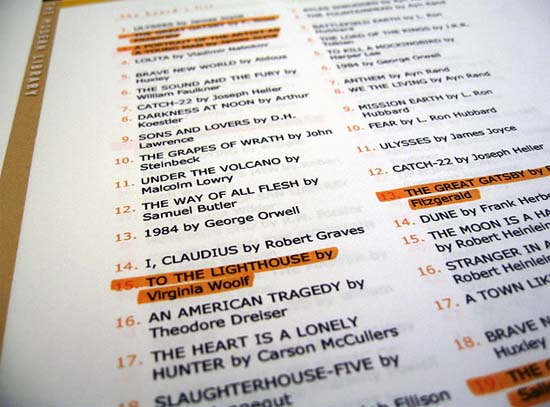
 There comes a time when you need to raise the stakes.
There comes a time when you need to raise the stakes.